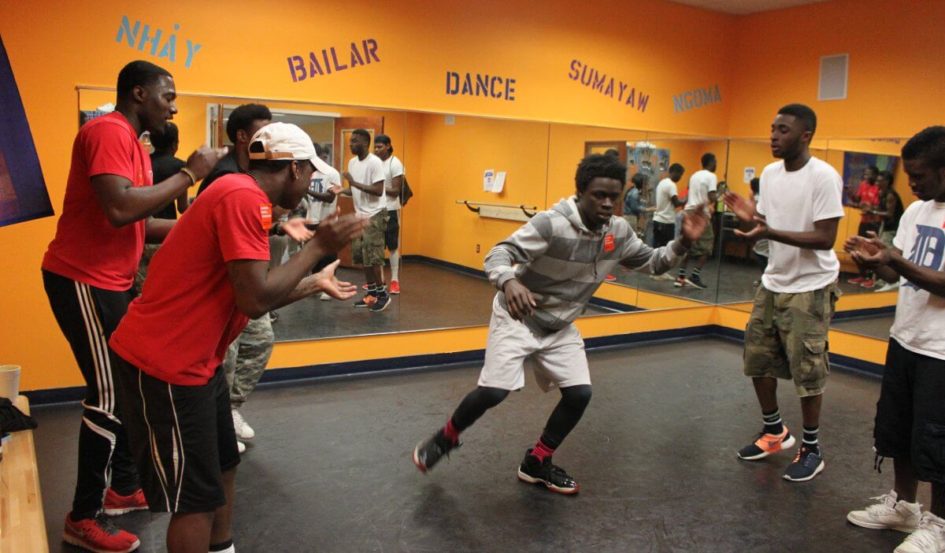Youth Development
Our Youth Development efforts are rooted in social change theory. The “Stages of Change Model” includes six phases: pre-contemplation, contemplation, preparation, action, maintenance, and termination or relapse.
The Worcester Youth Center Youth Development Model is rooted in social change theory and is consistent with that espoused by Prochaska and DiClemente (1984). The “Stages of Change Model” has six phases, pre-contemplation, contemplation, preparation, action, maintenance and termination or relapse. This model is widely used across various sectors including public health, nursing and youth development. WYC’s service strategies are aligned with this model as outlined below.
Services at WYC are organized into four main categories: Health/Wellness, Work Preparation, Academic Support, and Creative Arts & Leadership Development. More detail description can be found in our program areas.
WYC staff include program managers, transitional support (case management), and youth workers who work together to implement the various program components. Youth come to WYC at any point along the six phase continuum, and the staff designs an appropriate service strategy to meet their individual needs. The staff provide supportive guidance to youth as they move in and out of the various phases.
| Stage of Change Theory | Participant Characteristics | WYC Youth Development Model |
| Pre-contemplation | Youth have not though about change and are not ready to make changes | Phase 1, Intake & Assessment: Youth come to the Center to socialize and to be in a safe, youth-friendly environment. Some have not ever thought of ways to enhance their own growth and development. While others may come to meet specific life necessities, they often do not have an awareness of other needs. Membership registration, intake/assessment occurs at this time. Youth are assessed for developmentally appropriate activities that meet their interests. Program activities are introduced to participants by staff, and youth experience other options through their personal observation of activity and interactions among others members and staff. |
| Contemplation | Youth have been introduced to concepts or have had a significant life event that causes them to think about making changes; however, they may not know how to move forward | Phase 2, Basic Training: Staff meet with youth over time to explore their individual needs and discuss how the various WYC program activities can assist them on a pathway to improving their lives. The staff guide them to consider how decisions made today may impact their lives in the short-term and in years to come. |
| Preparation | Youth can articulate and are clear they are ready to make changes | Phase 3, Skills Acquisition: Youth become enrolled in one or more of the program activities to gain fundamental knowledge of a particular topic, such as 20 hours of basic workplace skills training. The case managers work with youth to address real or perceived barriers, such as transportation or peer pressure. A service plan is tailored to meet their individual needs, giving them a platform to succeed in achieving program goals and to deepen their participation. |
| Action | Youth are actively involved in making changes | Phase 4, Practical Learning: Youth are placed in more structured programming, such as technical training courses in culinary or media gaming, or volunteer/ internship opportunities with local organizations. Case management continues with a focus on meeting individual goals and/or formal progress meetings including feedback and ratings. |
| Maintenance | Participants are staying on track with necessary steps to sustain changes | Phase 5, Transition to Independence: This phase marks a critical juncture when a youth achieves goals indicating increasing independence, for example finding unsubsidized employment, passing the high school equivalency exam, or enrolling in higher education. |
| Termination or Re-Engagement | Youth have reach a level of independence and are ready to leave the program, or they fall back to one of the previous stages | Phase 6, Re-Engagement: The staff understand that youth may require additional support at any phase to get back on track. It is a common phenomenon for youth to fall back to a different stage of progress before succeeding. The staff recognize the change in status and support the youth to address the challenges and move forward. When a youth is truly ready to leave the Center, wrap around support services are provided for up to 6 months. |

